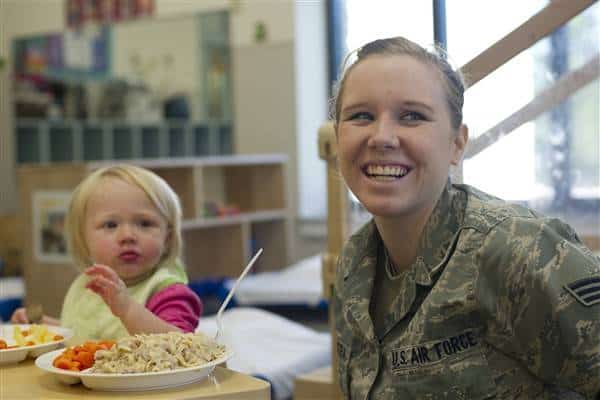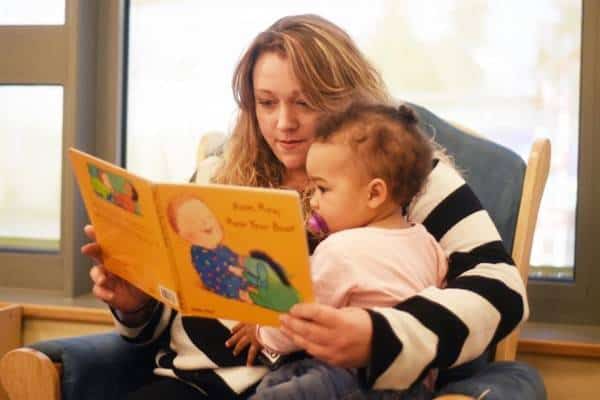Children born with Speech disorders need regular Speech Therapy exercises. The earlier we start with the Speech Therapy exercises the better it is for the child. Speech Therapy is highly recommended for speech and language disorders. The speech Therapy exercises also help with other Communication and swallowing disorders.
The speech therapist helps the child and trains the parents to help overcome the delays. The children spend a few hours with the speech therapist in the week. But they spend a major part of their time at home with parents. Parents can also contribute to the Speech Therapy exercises. This speeds up the improvement in the child’s speech and language skills.
Table of Contents
- Tips For Speech Therapy Exercises
- The Waking Up Speech Exercises
- The School Talk
- The Evening Program
- Tips for the Parents
Tips For Speech Therapy Exercises
The day starts with the mother or father waking up the child. The simple speech therapy exercises can start right from the moment the child opens his or her eyes.
The parent waking up the child in the morning has to be gentle and not rush the child to get up and start his routine. A grumpy child is not going to learn much during the day.
The Waking Up Speech Therapy Exercises
The mother or the father can start the child’s day with a simple talk. The talk should involve the child, ensure that the child replies. The more the child talks and communicates the faster they will become fluent. The parent can start with “Good Morning”, ensure that the child replies or wishes back. If the child does not reply, talk him into replying. The conversation can go on with “Did you sleep well” and “Were you comfortable during the night”. Gently request the child to repeat if they make a mistake in the pronunciation. This is a part of the speech therapy exercises that can be easily done at home.
The Bathroom Speech Therapy Exercises
The conversation can continue with small sentences. “Raj, please use the bathroom”. Depending on whether the child has been potty trained or no. If the child is not potty trained then give instructions like “pull your pyjamas down”. The parents with the help of the Speech therapist can use pictures of the actions. A picture of a child pulling his pants down. Or a child sitting on the potty. Point towards the picture of a child pulling his pyjamas or pants up. The parent should use speech and pictures together for better effect. The child speaking and having a conversation is part of voice exercises.
Keep the child continuously engaged in the conversation. “Raj put on the toothpaste”. Or Raj, start brushing your teeth”
Continue the Conversation
It is important that the parents continue to talk to the child. Make sure that the child replies and takes part in the conversation. Simple sentences like
- Let’s dress up
- Which shirt would you like to wear today?
- You cannot wear this, you wore it yesterday
- Which shoes would you like to wear?
- The conversation at the Breakfast table can start with
- Do you like eggs?
- Do you want chocolate chips or plain chips?

Make the Child Think and Form Sentences
Do not provide everything to the child. Leave out something intentionally. Do not provide milk along with the flakes or leave out the spoon at times. Make the child ask for it.
Speech Therapy exercises also involve the development of cognitive skills or cognitive functioning. Cognitive functioning is brain-based skill involving simple to complex tasks.
Also, discuss what he or she is going to do today in school. Children do get excited talking about the school activities and games. Ask them about their friends. Make the child talk as much as possible. This contributes to the speech therapy exercises. Make as much conversation as possible. Ask the child to name the foods he or she is eating. Does he like the food?
The School Talk
Talk to them about the activities for the day. Keep talking whenever you are with the child. The conversation should make the child think and answer. The child should be talking more than you. The parents have to draw the child into a conversation. The continuous conversation with the parents supports the speech therapy exercises. It complements the lessons received from the Speech Therapist.

If you drive your child to school, it can be a wonderful opportunity to talk about the surroundings. Talk about the landmarks you are passing by. Ask the child which will be the next landmark. A landmark could be a shopping mall, a restaurant, an ice cream parlour or a toy shop. Make the child name the landmarks. Ask the child for directions, this will help the child to remember the landmarks.
You can play games if the drive is a little long. Games like the spelling of things they see. Rhyming with the objects you pass by on the way to school if the child is old enough to rhyme.
The Evening Program
The evening program is the same as the morning routine. Discuss the food items. Make the child name the food items.
Ask the child about the school activities. Which games did he or she play? What did they learn at school?
As far as possible ask open-ended questions, let the child finish the sentence.

Evening games can be a very important part of the daily routine. Play games which will involve thinking and talking.
- Read them a story from a storybook with pictures. Ask the child to repeat the story by pointing at the pictures.
- Play acting is a good exercise. Ask the child to enact the story you have read out. Let them act out the characters by using their imagination.
- Spread out his toys and hide one toy behind your back. Ask him or her to guess the missing toy. Give them clues like animal or person, the colour of the toy etc. Keep giving them clues till they guess right.
- Draw a picture and ask the child to identify. You can draw a picture of one of the toys for easy identification.
- Let them play with their favourite toy. If the boy likes to play with a toy train or a car, ask him to make the right sounds. The sound of the train engine or the sound of the moving car.
- The girls can play with their dolls. They should keep talking to their doll. They can dress up the doll, put the doll to sleep.
Tips for the Parents
Parents should consult a Speech Therapist to identify the type of speech disorder. Do not consult non-professionals and believe in unscientific myths.
Parents play a very important role in the speech therapy exercise program. They should keep the following tips in mind.
- Give full concentration to the child. Do not multitask or get distracted by other issues.
- Do not unnecessarily and repeatedly correct them. Add to their conversation positively.
- Teach them conversation skills. Gently instruct them to look at the person they are talking to. Tell them not to interrupt and wait to speak.
- Teach them to request if they want something. They should not grab.
- Always praise and encourage the child to speak. Compliment him or her when they complete a task or a game.
- Avoid overexposing the child to mobile phones and television. Do not hand over the phone or make them sit in front of the television for long. Regulate the screen time. Check with the Speech Therapist about the screen time exposure.
- Allow your child to talk about their likes and dislikes. Encourage them to tell you if they do not like something.
- If the child has a sibling, they can make excellent playmates. The child will be comfortable playing and talking to the sibling. They tend to bond better with their siblings.
- Children learn through imitation. Make the child sit in front of the mirror and speak. Ask the child to notice the shape and movements of the lips. This will improve the child’s speech and language delivery.
The above mentioned Speech Therapy exercises are general in nature. Your child’s Speech Therapist will advise you on specific exercises. Parents play a very important role in helping the child to overcome speech disorders. Some special schools prefer the parents also attend classes along with the child. We can help you locate a Speech therapist in your neighbourhood. Please fill in your requirements on the Helpline page.
